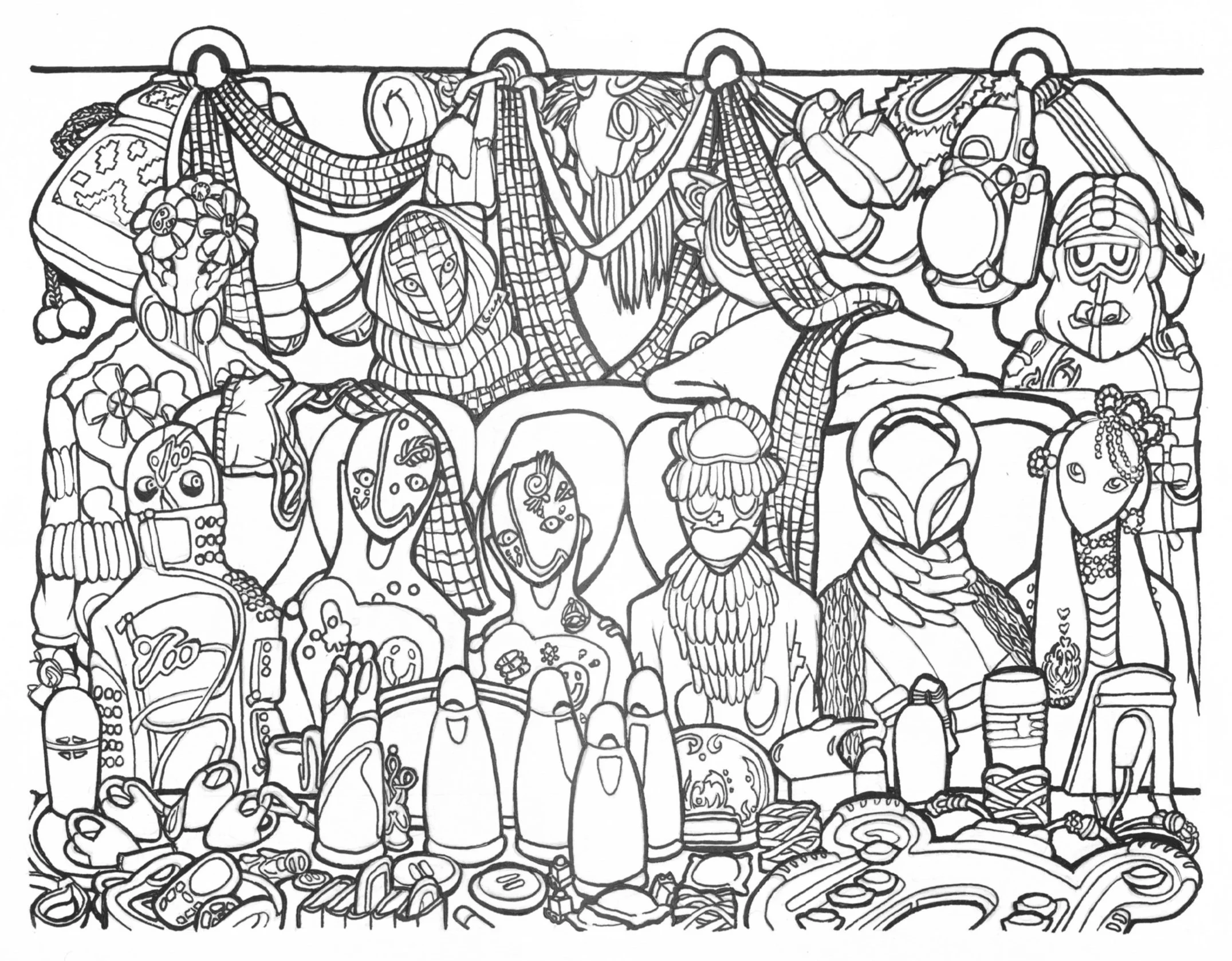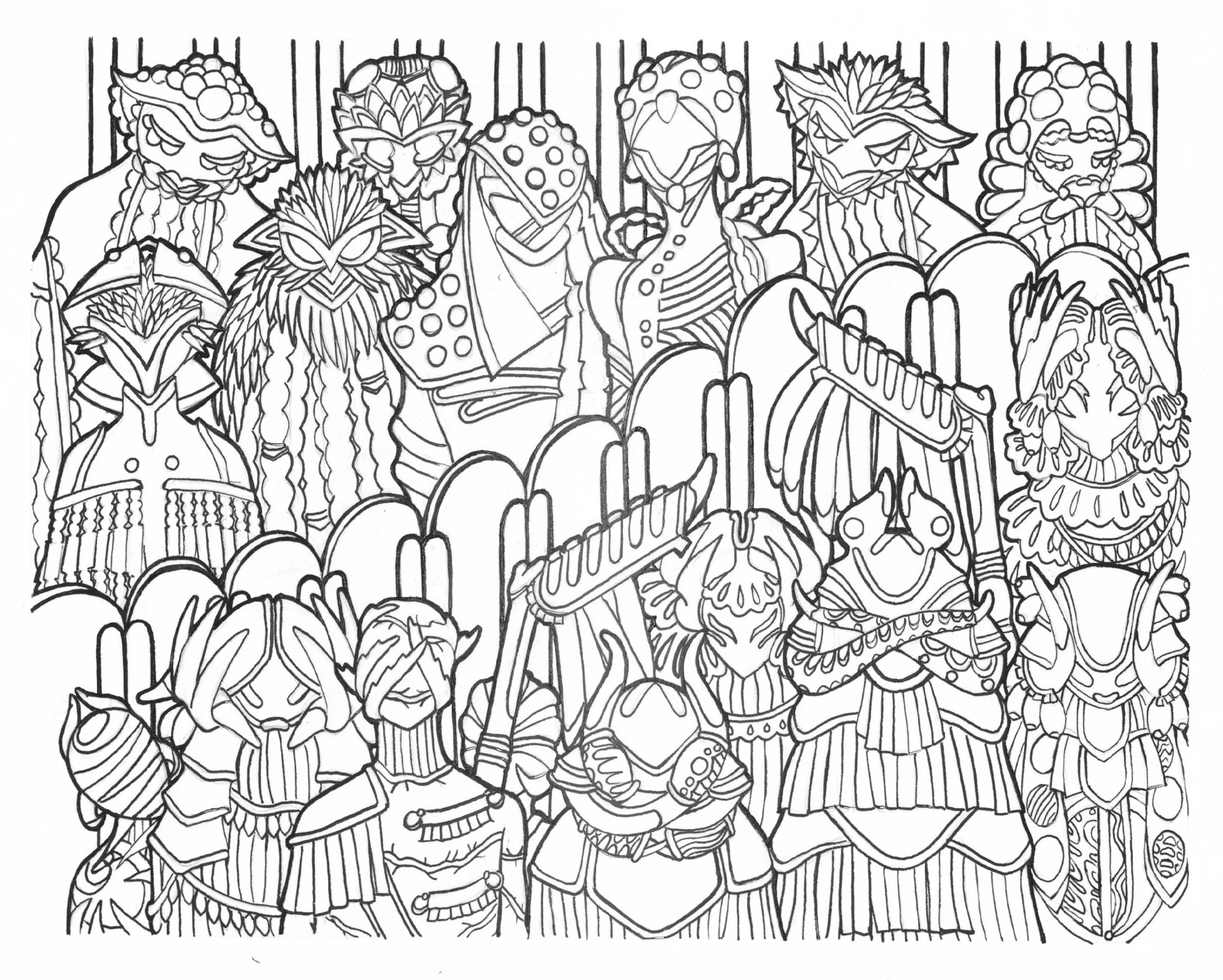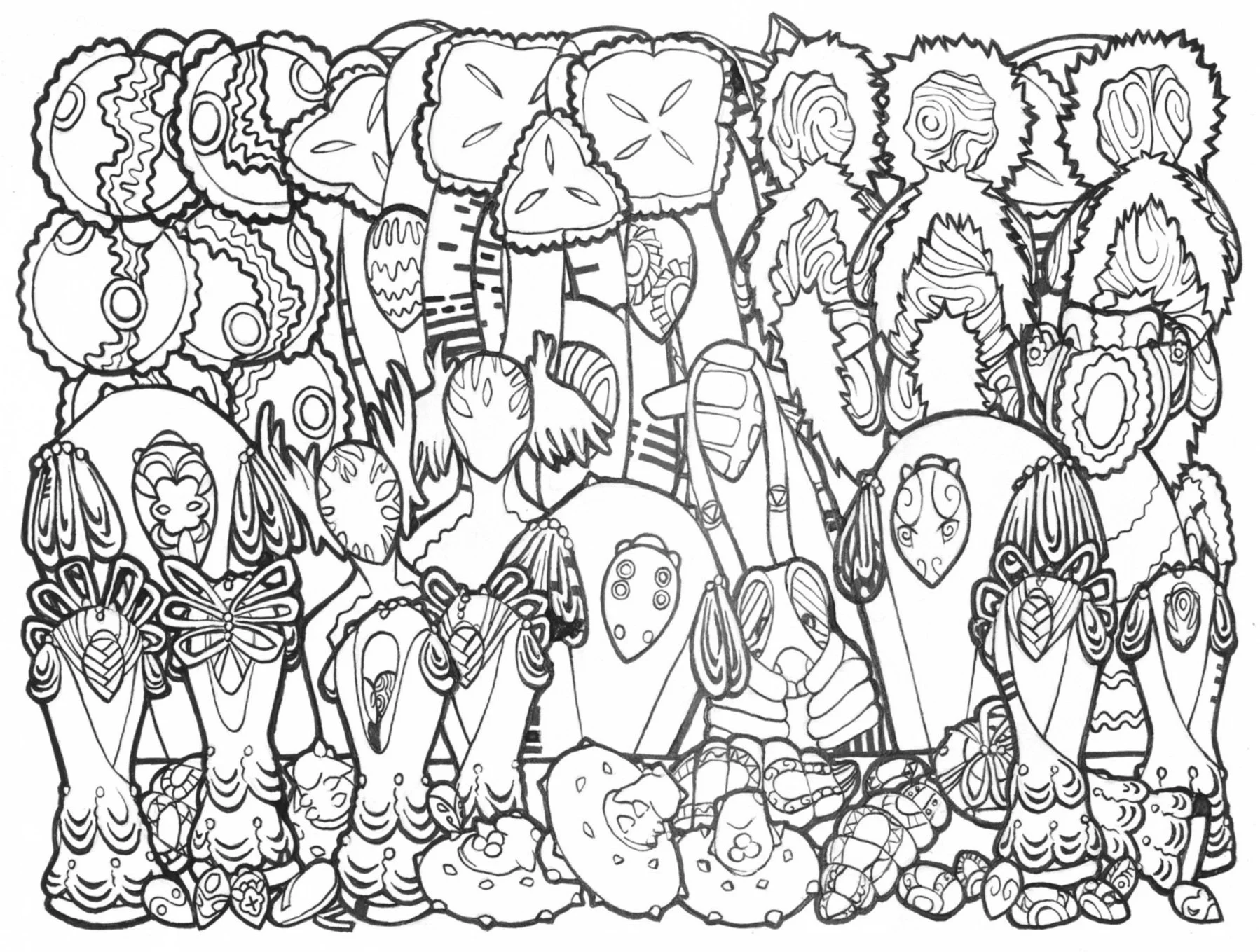Voidpunk Utopias
Year
2019
Voidpunk Utopias investigates the visual world of speculative fiction as a playground for our ideas about identity and culture. It asks how our fantasies shape how we view our reality, and explores marginalized imagination as a force for change and empowerment.
Project Origins
I loved Star Wars as a kid. I never wanted to be Luke Skywalker though, nor did I imagine myself as Princess Leia. I wanted to be one of the alien background characters with a cool mask that spoke in a made-up language.
It wasn’t until I started getting older and discovering queer and neurodivergent aspects of my identity that I started to make sense of my love of masks and costumes. I didn’t see myself in the protagonists, so I projected myself onto the anonymous figures of sci-fi and fantasy. Through them, I could be anyone I wanted, and could imagine their way of navigating the world in any way I wanted. Eventually, I discovered a community of people who had similar experiences with speculative fiction, and they rallied behind the term “voidpunk”. For us, speculative fiction was a safe space for exploring identity and cultural possibilities.
“Voidpunk” is a subculture in which dehumanized people reclaim their dehumanization by embracing the concept of non-humanity. This is often expressed through a love for ghosts, aliens, robots, and other non-human characters that are historically coded as queer and neurodivergent, but voidpunk can also be embraced in philosophical and political ways.
Voidpunk Utopias reimagines identity and culture through a queer and neurodivergent lens. In the spirit of Walidah Imarisah and Adrienne Maree Brown’s “visionary fiction”, this collection of pen and ink drawings invites viewers to inhabit avatars that fall outside the boundaries of prescribed social roles and norms to expand limits of self-perception. It also explores scenes which don’t exist due to power being centralized in a differing set of perceptions and priorities, rather than a lack of material goods or technological advancement, to investigate how imaginary worlds tie into our understanding of what our world can be.





